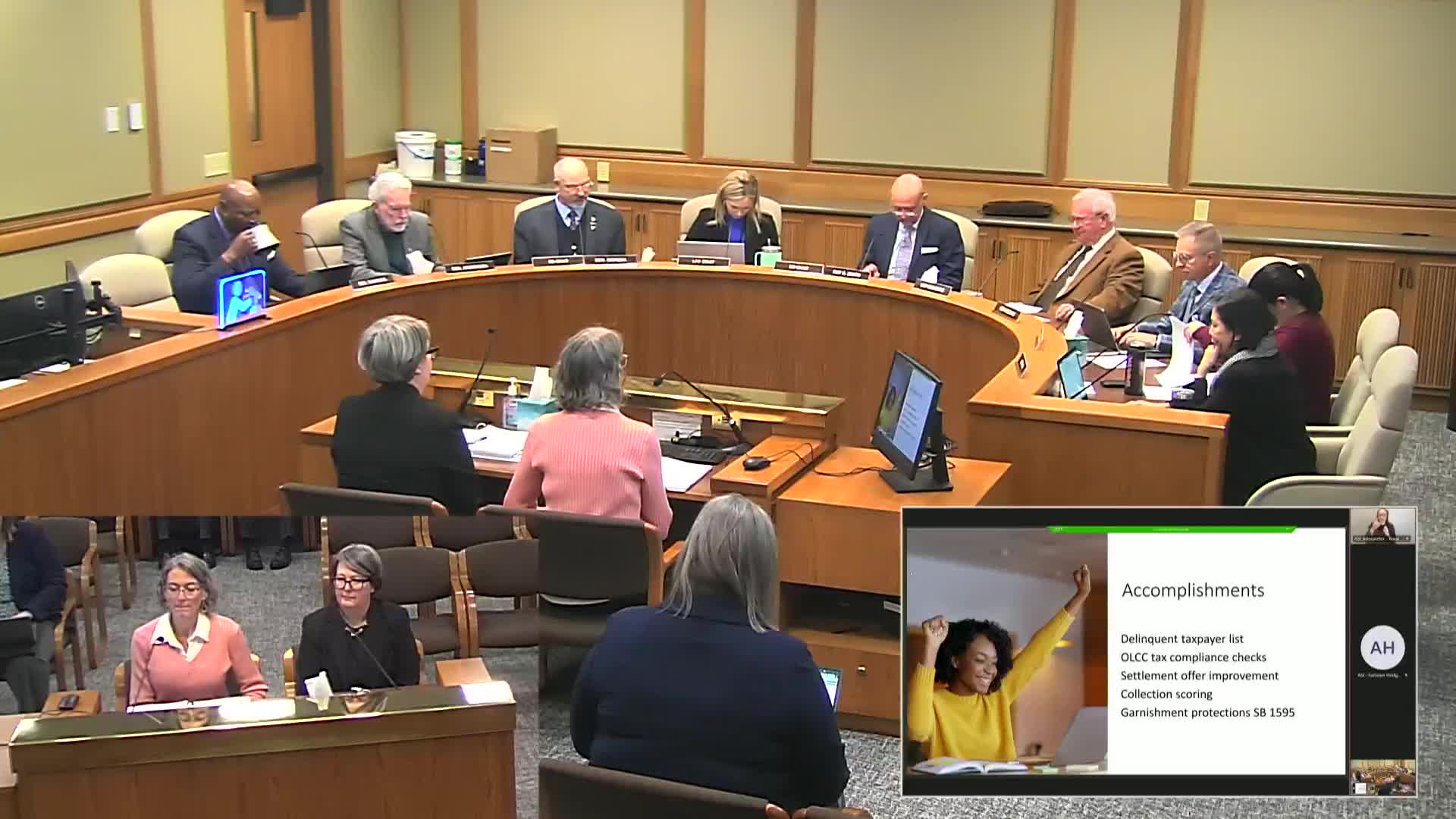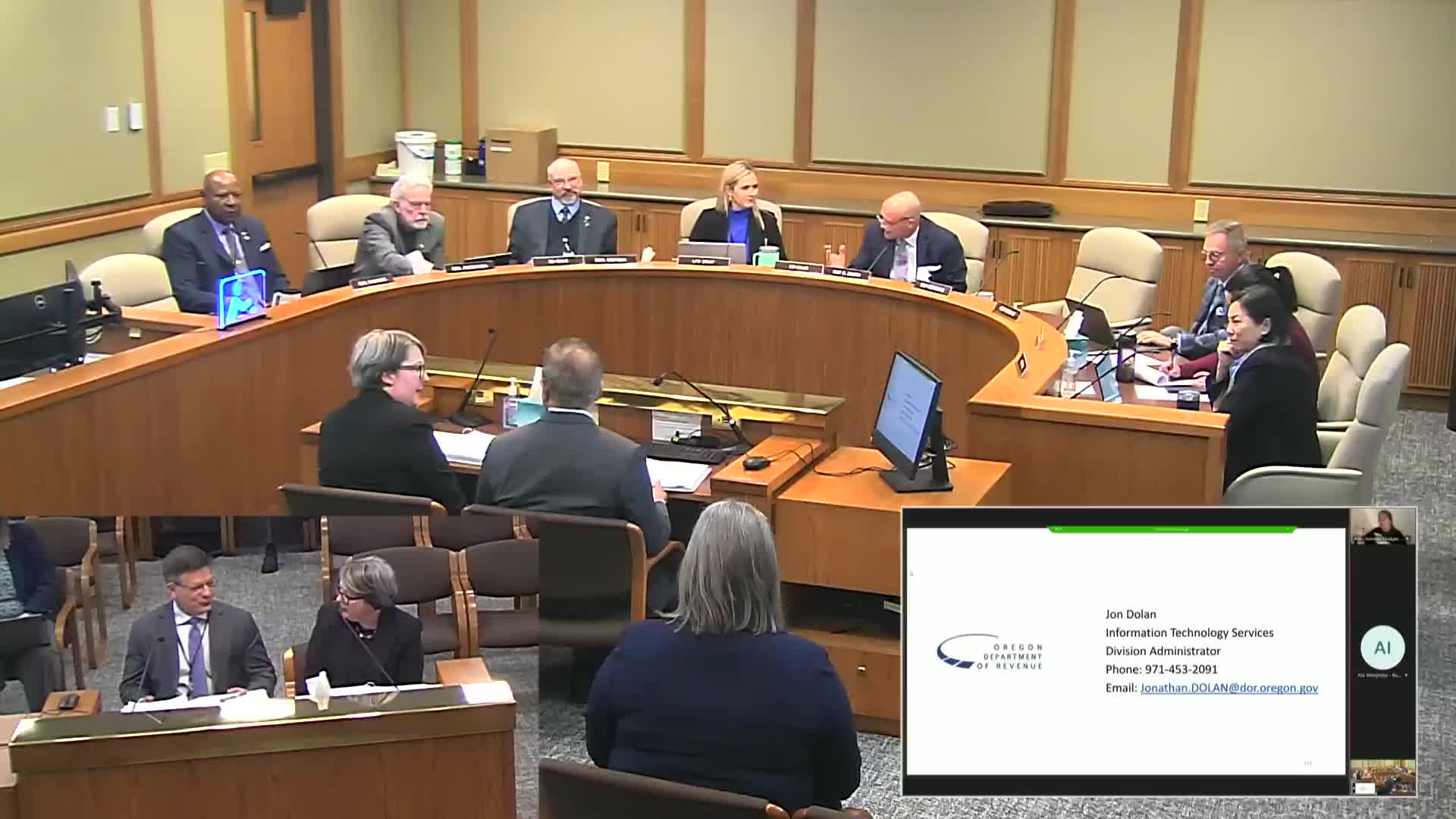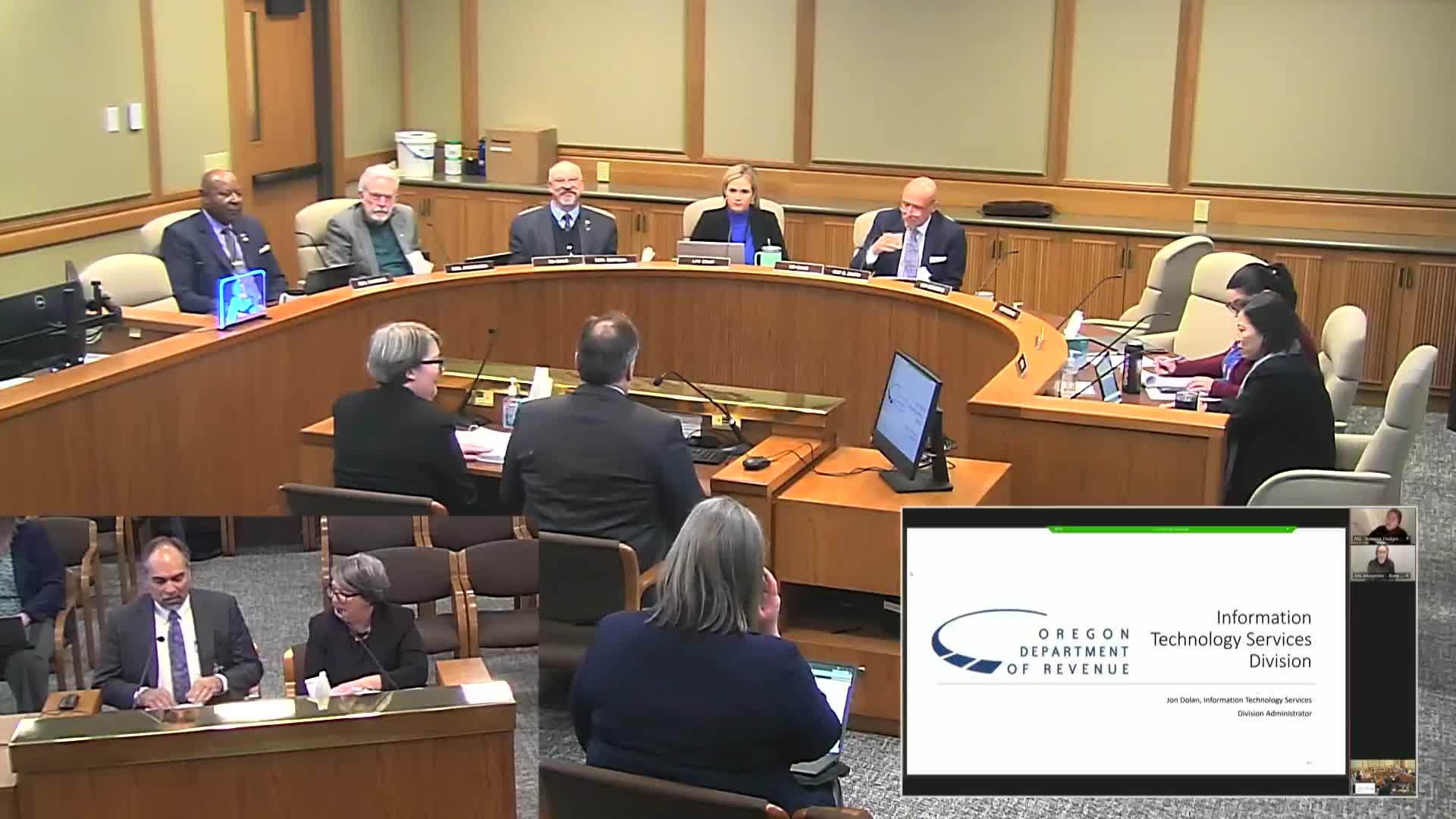Article not found
This article is no longer available. But don't worry—we've gathered other articles that discuss the same topic.

Oregon Department of Revenue asks for 11 positions, $1.9 million to expand collections after new tools boost recoveries

DOR administration reports process improvements, new internal controls and taxpayer advocate office; agency highlights audit progress

